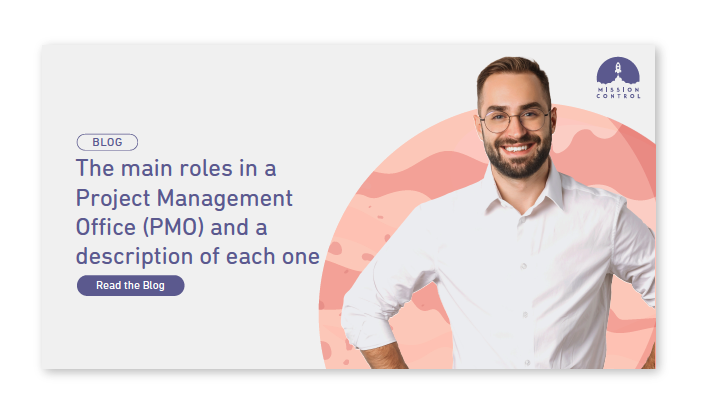A Project Management Office (PMO) plays a crucial role in organizations by ensuring that projects are planned, executed, and completed successfully. The PMO serves as a centralized hub for project management, providing guidance, standards, and support to project teams and stakeholders. The main roles within a PMO can vary depending on the organization’s structure and needs, but they generally include the following:
- PMO Director/Manager:
- Description: The PMO Director or Manager is responsible for the overall leadership and management of the PMO. They set the strategic direction, establish goals and objectives, and ensure that the PMO aligns with the organization’s overall business objectives. The PMO Director/Manager also oversees the performance of the PMO and reports to executive management.
- Project Portfolio Manager:
- Description: The Project Portfolio Manager is responsible for managing the organization’s portfolio of projects. They prioritize projects based on strategic goals, resource availability, and other relevant criteria. The Project Portfolio Manager ensures that the project portfolio aligns with the organization’s strategic objectives and that resources are allocated appropriately.
- Project Manager:
- Description: Project Managers are responsible for the planning, execution, and closure of individual projects. They define project scope, create schedules, allocate resources, manage risks, and ensure that projects are completed on time and within budget. Project Managers also communicate with stakeholders and report project status to the PMO.
- Program Manager:
- Description: Program Managers oversee a group of related projects that are managed and coordinated together to achieve strategic objectives. They ensure that the projects within the program are aligned with organizational goals and work collaboratively with Project Managers to manage dependencies and optimize resources.
- Project Coordinator:
- Description: Project Coordinators provide administrative support to Project Managers and the PMO. They assist in maintaining project documentation, scheduling meetings, tracking project tasks, and ensuring that project information is up-to-date. Project Coordinators play a crucial role in facilitating communication and coordination within the project team.
- Business Analyst:
- Description: Business Analysts work closely with stakeholders to gather and analyze requirements for projects. They play a key role in defining project scope, documenting business processes, and ensuring that the project meets the needs of the organization. Business Analysts help bridge the gap between business goals and technical solutions.
- Quality Assurance (QA) Manager:
- Description: QA Managers are responsible for ensuring that project deliverables meet quality standards. They develop and implement quality assurance processes, conduct audits, and collaborate with project teams to identify and address quality issues. QA Managers play a crucial role in minimizing risks and ensuring the overall success of projects.
- Risk Manager:
- Description: Risk Managers identify, assess, and manage risks associated with projects. They work closely with Project Managers and stakeholders to develop risk mitigation strategies, monitor risk triggers, and ensure that risks are effectively managed throughout the project lifecycle. Risk Managers help minimize the impact of uncertainties on project outcomes.
- Resource Manager:
- Description: Resource Managers are responsible for managing and optimizing the allocation of resources across projects. They work closely with Project Managers and Program Managers to ensure that the right resources are available at the right time. Resource Managers also monitor resource utilization and help resolve resource conflicts.
- Financial Analyst:
- Description: Financial Analysts within the PMO are responsible for budgeting, forecasting, and tracking project finances. They work closely with Project Managers to develop project budgets, monitor spending, and provide financial reports to stakeholders. Financial Analysts play a crucial role in ensuring that projects are delivered within budget constraints.
- Communications Manager:
- Description: Communications Managers are responsible for developing and implementing communication strategies for projects. They ensure that project information is effectively communicated to stakeholders, both internally and externally. Communications Managers also play a key role in managing change communication and addressing stakeholder concerns.
- Training and Development Manager:
- Description: Training and Development Managers are responsible for identifying training needs within the PMO and developing training programs to enhance the skills of project teams. They work to ensure that team members have the necessary knowledge and capabilities to successfully execute their roles within projects.
- Technology/Tools Specialist:
- Description: Technology or Tools Specialists within the PMO focus on selecting, implementing, and maintaining project management tools and technologies. They ensure that project teams have access to the right tools for collaboration, scheduling, and reporting. Technology Specialists also provide training and support for these tools.
- Governance and Compliance Manager:
- Description: Governance and Compliance Managers ensure that projects adhere to organizational policies, standards, and regulatory requirements. They develop and enforce project management processes, conduct audits to ensure compliance, and provide guidance on best practices. Governance and Compliance Managers help mitigate legal and regulatory risks associated with projects.
- Stakeholder Manager:
- Description: Stakeholder Managers focus on identifying, analyzing, and engaging with stakeholders throughout the project lifecycle. They ensure that stakeholder expectations are managed, and communication is tailored to different audience needs. Stakeholder Managers play a crucial role in building positive relationships with key project stakeholders.
- Metrics and Reporting Analyst:
- Description: Metrics and Reporting Analysts are responsible for defining and tracking key performance indicators (KPIs) for projects. They collect and analyze data to measure project performance, identify trends, and provide insights to support decision-making. Metrics and Reporting Analysts contribute to continuous improvement efforts within the PMO.
- Change Management Specialist:
- Description: Change Management Specialists focus on managing the people side of change within projects. They develop change management plans, assess the impact of changes on individuals and teams, and implement strategies to help employees adapt to new processes or technologies. Change Management Specialists contribute to the successful adoption of changes within the organization.
- Knowledge Management Specialist:
- Description: Knowledge Management Specialists focus on capturing, organizing, and sharing knowledge within the PMO. They develop knowledge management systems, document best practices, and facilitate knowledge sharing among project teams. Knowledge Management Specialists contribute to organizational learning and continuous improvement.
- Continuous Improvement Manager:
- Description: Continuous Improvement Managers focus on identifying opportunities to enhance project management processes and methodologies. They lead initiatives to implement improvements, gather feedback from project teams, and ensure that lessons learned from projects are applied to future initiatives. Continuous Improvement Managers contribute to the maturity and effectiveness of the PMO.
- Vendor/Contract Manager:
- Description: Vendor/Contract Managers are responsible for managing relationships with external vendors and contractors. They oversee the procurement process, negotiate contracts, and ensure that vendors meet contractual obligations. Vendor/Contract Managers play a key role in managing external resources and ensuring the success of outsourced project components.
These roles collectively contribute to the success of the PMO by providing a diverse set of skills and expertise. The effectiveness of a PMO often depends on how well these roles collaborate and work together to achieve common goals. It’s important to note that the size and structure of a PMO can vary, with some organizations having a smaller, centralized PMO, while others may have multiple PMOs that cater to different business units or departments.
Mission Control, a Salesforce-native, project management and PSA platform is helping thousands of PMOs across 25 countries to better manage their projects, resources, time and financials.
Ready to take your PMO to infinity and beyond? Contact us today for a demo.




